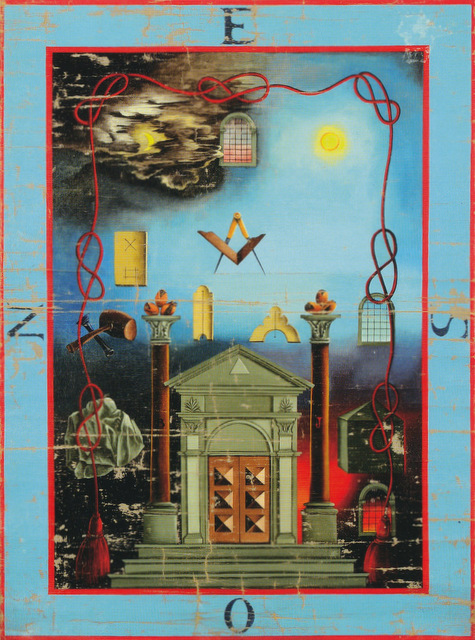The Renaissance of Traditional Freemasonry.
Developments in French and Belgian Freemasonry during the course of the 19th and 20th Centuries, as described earlier, had dramatic consequences for the Order. In fact, most of the rest of the world’s Grand Lodges broke off relations with what they considered as an inacceptable deviation. As they themselves repudiated any interference in politics, required their members to have a belief in God and remained faithful to the old customs of the original Lodges, they could only condemn this departure. They have done so categorically since the end of the 19th Century and to date have had no reason to change their stance.
The resultant schism drove French and Belgian masonry into isolation, which they accepted as the price of their ideological and political positions; but for some this isolation was painful as they well recognised that it meant the loss of their essential values. From the end of the 19th Century a reaction emerged that has gradually grown in importance.
One or two sought to revive the spiritual content and initiatory message of Masonic ritual. Isolated and very much in the minority, their actions were misunderstood and often badly received. In fact these attempts, however laudable were all too often a product of their age and produced few results. Some, like Oswald Wirth, attempted to explain Masonic ritual and symbols through occultism and the questionable spiritualism which flourished at the end of the 19th Century which was only to end up on the back shelves of bookshops. Others, such as Goblet d’Alviela in Belgium, tried to give Freemasonry a place in the immense fresco of human religions and to show that it embodied and even surpassed them. Unfortunately, the limited knowledge of the time, especially the esoteric interpretation of religion, led to what were often disappointing results.
However, in spite of its deficiencies, this striving for recovery led to the emergence of Lodges refusing any political interference and to the resurgence of the old Masonic precept of love for one’s fellow man based on a belief in God, the creative principle.
In France this led to the setting up in 1913 of the Grande Loge Indépendante et Régulière pour la France et les Colonies by two Lodges: Le Centre des Amis in Paris and L’Anglaise in Bordeaux. This Constitution, became later the Grande Loge Nationale Française (G.L.N.F.),
In Belgium the awakening of traditional Freemasonry took place in two stages. In spite of several attempts between the two World Wars and after 1945, the Grand Orient of Belgium proved unable to resist extending its influence in the outside world nor, in contradiction to the traditional Masonic landmarks, accepting candidates who were professed atheists.
Taking stock of this stalemate, five Lodges set up the Grand Lodge of Belgium in 1959 in a bid to return to universal Freemasonry. It adopted a constitution which in its preliminary declaration met the requirements of Masonic Regularity. On this basis the new Grand Lodge was recognised by nearly all of the world’s Grand Lodges and all seemed set fair. Unfortunately, after a few years it turned out that its Constitution was still not explicit enough for there soon arose failings in its rules that might have first seemed harmless but which in time were to come to a head. Its rules were questioned, even by its leaders, some wanting to empty its basic principles of all real meaning. An increasing number of its members, wanting to retain some international recognition whilst at the same time rebuilding links with irregular bodies, especially with the Lodges of the Grand Orient of Belgium, were unable to retain an unambiguous approach to such fundamental points as affirming the existence of the Supreme Being and abstaining from Masonic relations with non-recognised bodies.
As a consequence of this equivocation, the Grand Lodge of Belgium lost the recognition of several Grand Lodges in Spring 1979 and it became obvious that most of the other Constitutions would follow suit.
A number of Freemasons of the Grand Lodge of Belgium decided to react against this situation and on 15 June 1979 nine Lodges founded the Regular Grand Lodge of Belgium.

R.L.Le Cèdre nr. 17 – O. Bruxelles